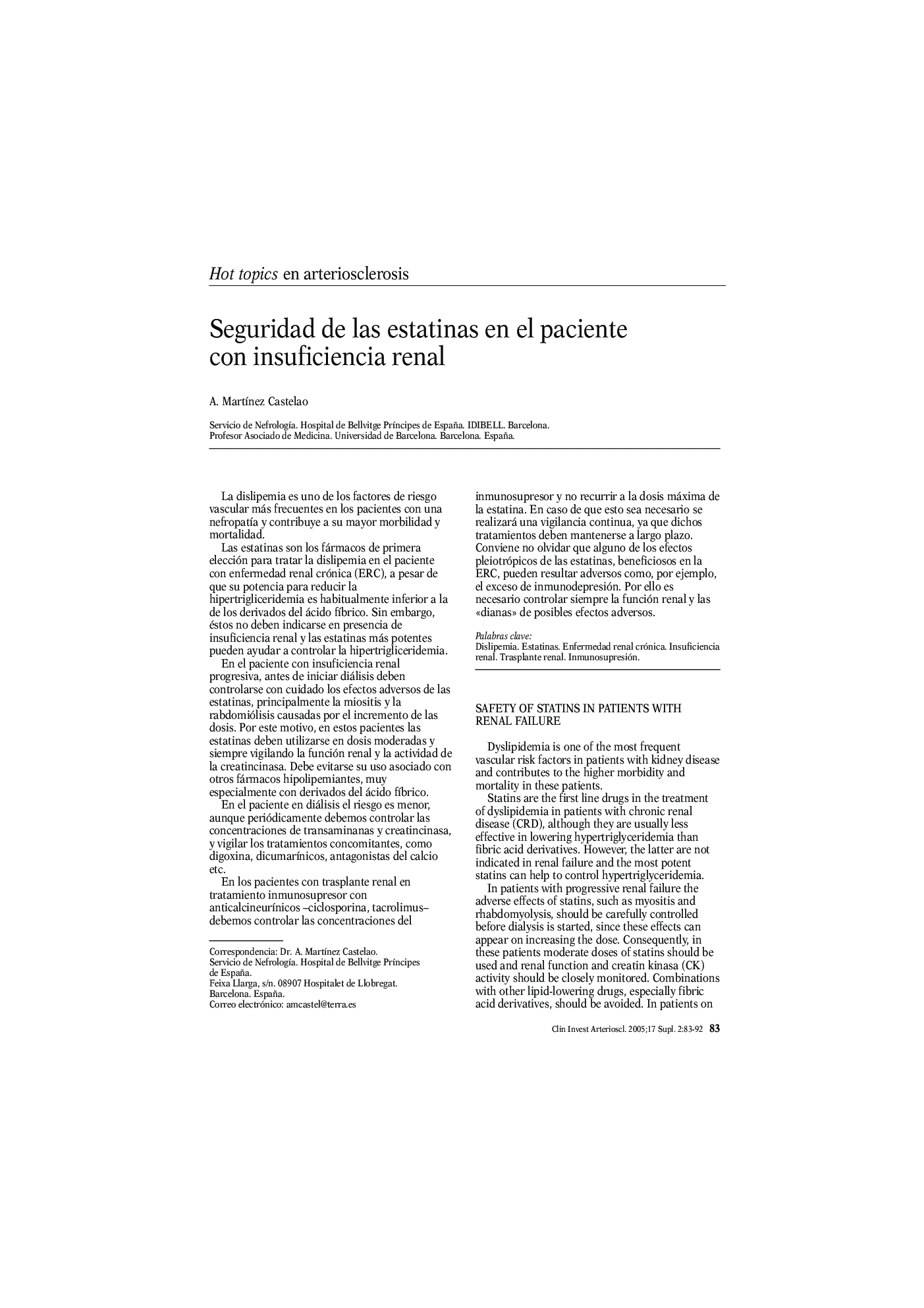| Article ID | Journal | Published Year | Pages | File Type |
|---|---|---|---|---|
| 9146867 | Clínica e Investigación en Arteriosclerosis | 2005 | 10 Pages |
Abstract
In patients with progressive renal failure the adverse effects of statins, such as myositis and rhabdomyolysis, should be carefully controlled before dialysis is started, since these effects can appear on increasing the dose. Consequently, in these patients moderate doses of statins should be used and renal function and creatin kinasa (CK) activity should be closely monitored. Combinations with other lipid-lowering drugs, especially fibric acid derivatives, should be avoided. In patients on dialysis, the risk is lower although transaminase and CK levels should be periodically monitored, and concomitant treatments (digoxin, anticoagulants, calcium channel blockers, etc.), should be closely followed-up. In renal transplant recipients undergoing immunosuppression with anticalcineurinic drugs (cyclosporine, tacrolimus) immunosuppressor levels should be monitored, without resorting to the maximum statin dose. If this is necessary, then monitoring should be continuous, given that these treatments must be maintained in the long-term. Some of the pleiotropic effects of statins, which are beneficial in CRD, can be harmful, for example, an excess of immunosuppression. Consequently, renal function and the “targets” of possible adverse effects should always be monitored.
Keywords
Related Topics
Life Sciences
Biochemistry, Genetics and Molecular Biology
Physiology
Authors
A. MartÃnez Castelao,
